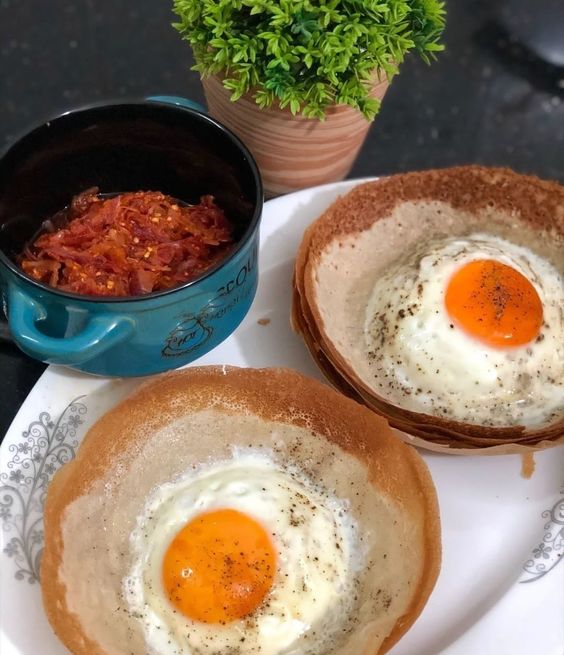Best Foods For Cholesterol
🌼For general health, it is important to maintain good cholesterol levels, and food is a key factor in controlling cholesterol levels. Eating the right meals to control cholesterol can have a major impact on heart health and general well-being.
First, prioritize including foods high in soluble fiber, such as oats, beans, lentils, fruits (including apples, oranges, and berries), and vegetables (like carrots and Brussels sprouts). Because soluble fiber lessens the bloodstream's absorption of LDL (bad) cholesterol, it lowers LDL levels.
Second, incorporate heart-healthy fats from foods like avocados, olive oil, seeds like chia and flaxseed, and nuts like almonds, walnuts, and pistachios. These fats include both polyunsaturated and monounsaturated fats, which can help lower LDL cholesterol and increase HDL (good) cholesterol.
Furthermore, omega-3 fatty acids, which are abundant in fatty fish like salmon, mackerel, and trout, have been demonstrated to lower cholesterol and lower the risk of heart disease.
Additionally, including foods like some margarines that have been fortified with plant sterols and stanols can help lower LDL cholesterol levels.
In summary, controlling cholesterol levels and supporting heart health can be greatly aided by eating a diet high in soluble fiber, heart-healthy fats, omega-3 fatty acids, and plant sterols.
❤ It's critical to concentrate on eating a balanced diet full of nutrient-rich meals in order to control cholesterol levels. The following foods may lower cholesterol levels:
01. Fruits And Vegetables
❤ Fruits and vegetables, with their high fiber content, antioxidants, and variety of nutrients, are essential for controlling cholesterol levels. By binding to LDL cholesterol in the digestive tract, soluble fiber, which is present in fruits like apples, oranges, and berries as well as vegetables like carrots and Brussels sprouts, helps lower LDL cholesterol. Furthermore, fruits and vegetables are heart-healthy since they are low in cholesterol and saturated fats. Foods high in potassium, including spinach and bananas, can also help lower blood pressure, which subsequently lowers cholesterol. Consuming a range of vibrant fruits and vegetables can help maintain cardiovascular health and lower total cholesterol.
02. Oats And Whole Grains
❤ One important food that lowers cholesterol is soluble fiber, which is abundant in oats and whole grains. In the digestive tract, soluble fiber binds to cholesterol to stop it from being absorbed into the bloodstream. LDL cholesterol, the "bad" cholesterol linked to heart disease, decreases as a result of this. Furthermore, plant sterols included in whole grains further prevent the absorption of cholesterol. Consuming whole grains and oats on a regular basis as part of a balanced diet can help lower the risk of cardiovascular disease and maintain healthy cholesterol levels. They can be used to effectively boost heart health when added to dishes like brown rice, porridge, and whole grain bread.
03. Legumes
❤ Soluble fiber, found in legumes such beans, lentils, and chickpeas, is essential for reducing cholesterol levels. In the digestive system, soluble fiber binds to cholesterol to stop it from being absorbed into the bloodstream. Without reducing HDL (good) cholesterol, this process lowers total cholesterol levels, especially LDL (bad) cholesterol. Legumes also support heart health since they are high in nutrients, such as plant-based proteins, vitamins, and minerals, and low in saturated fats. Legumes can help control cholesterol and lower the risk of cardiovascular disease when included in a balanced diet.
04. Nuts And Seeds
❤Nutrients that are good for the heart, including as fiber, plant sterols, unsaturated fats, and antioxidants, are abundant in nuts and seeds. Including them in your diet can help keep or even raise your levels of HDL (good) cholesterol while lowering LDL (bad) cholesterol. Unsaturated fats, such as the omega-3 fatty acids present in nuts and seeds, have been shown to lower inflammation and enhance blood vessel function, both of which support heart health in general. Their high fiber content also helps to lessen the gut's absorption of cholesterol. Eating a range of nuts and seeds as part of a healthy diet can be a tasty and practical way to lower cholesterol and improve cardiovascular health.
05. Avocados
❤ Rich in heart-healthy monounsaturated fats that can help lower LDL (bad) cholesterol levels while raising HDL (good) cholesterol levels, avocados are a fruit that is high in nutrients. They also include plant sterols, which are substances that in the intestine compete with cholesterol for absorption, lowering the total amount of cholesterol absorbed. Additionally, avocados contain fiber, which improves digestion and lowers cholesterol. Additionally, they contain a wealth of antioxidants, such as vitamin E, which shield cholesterol from oxidative damage and lower the risk of plaque buildup in arteries. Avocados can help maintain healthy cholesterol levels and improve cardiovascular health when included in a balanced diet.
06. Fatty Fish
❤ Omega-3 fatty acids, more especially EPA and DHA, are abundant in fatty fish like salmon, mackerel, and sardines. It has been demonstrated that these beneficial fats raise "good" HDL cholesterol levels while lowering triglyceride and "bad" LDL cholesterol levels. In addition to their ability to lower blood pressure and reduce inflammation, omega-3s can also improve heart health. Regular consumption of fatty fish—ideally, two servings each week—can help to lower cholesterol and promote general cardiovascular health. Furthermore, fish is a lean protein source, which makes it a wholesome option for keeping a diet in balance.
07. Soy Foods
❤ Foods made from soy, such as tempeh, edamame, and tofu, contain substances called isoflavones that function in the body similarly to estrogen. It has been demonstrated that these isoflavones lower LDL cholesterol, or "bad" cholesterol, which lowers the risk of cardiovascular disease. Furthermore, animal proteins heavy in saturated fats can be replaced by soy proteins, which helps regulate cholesterol even more. Consuming soy products on a regular basis as part of a balanced diet can help lower cholesterol and improve heart health. Individual reactions could differ, though, so it's crucial to include soy products in a well-rounded diet for the best results.
08. Olive Oil
❤ Monounsaturated fats and polyphenols included in olive oil, especially extra virgin olive oil, are important for controlling cholesterol levels. A better lipid profile is promoted by monounsaturated fats, which help raise HDL (good) cholesterol while lowering LDL (bad) cholesterol. Furthermore, the polyphenols in olive oil contain antioxidant qualities that lessen oxidative stress and inflammation in blood vessels, halting the oxidation of cholesterol and the development of plaque. As part of a balanced diet, regular use of olive oil can help improve cardiovascular health by reducing the risk of high cholesterol-related atherosclerosis and coronary heart disease.
09. Green Tea
❤ Particularly epigallocatechin gallate (EGCG), a type of catechin found in green tea has been demonstrated to help lower LDL cholesterol (the "bad" cholesterol) and raise HDL cholesterol (the "good" cholesterol). EGCG encourages the body to excrete cholesterol by blocking its absorption in the colon. Consuming green tea has also been connected to better lipid profiles generally, which lowers the risk of cardiovascular illnesses. Consuming green tea on a regular basis as part of a nutritious diet and way of life may help to keep cholesterol levels in check and improve heart health.
10. Garlic
❤ Garlic's ability to decrease cholesterol is partly attributed to its composition of sulfur and allicin. Allicin decreases the liver's production of cholesterol and the intestines' absorption of it. Garlic also increases the synthesis of enzymes that aid in the breakdown of cholesterol particles. Regular use of garlic may reduce overall cholesterol levels, especially LDL (bad) cholesterol, while raising HDL (good) cholesterol, according to studies. Its antioxidant qualities also stop cholesterol from oxidizing, which lowers the chance of artery plaque development. Garlic may therefore help control cholesterol levels and support cardiovascular health when included in a balanced diet. For individualized guidance, it is imperative to speak with a healthcare provider, however.
🌼 You should include these foods in your diet in addition to limiting your intake of refined carbs, trans fats, and saturated fats because these can increase your levels of low-density lipoprotein (LDL) cholesterol. Maintaining a healthy weight and engaging in regular exercise are crucial for controlling cholesterol levels and heart health in general. It's a good idea to create a personalized nutrition plan with a healthcare professional or certified dietitian if you have high cholesterol or other heart disease risk factors.☺☺☺


















